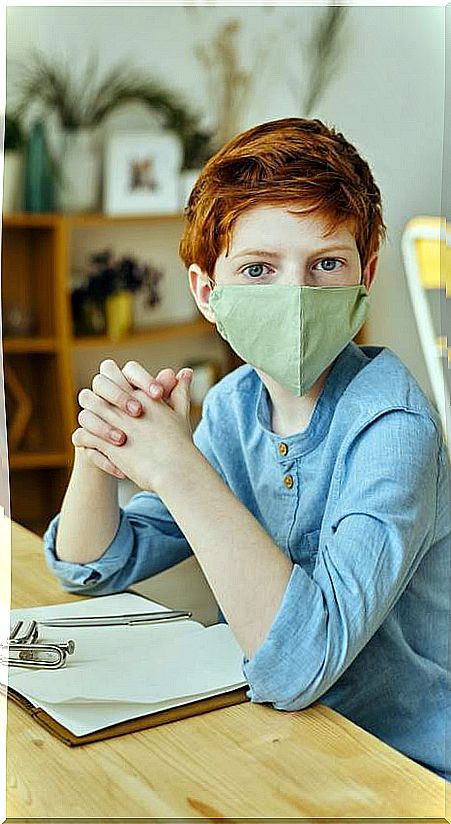Back To School 2020: How To Help Children Assimilate The Changes
Back to school this year 2020 is marked by the exceptional situation of the pandemic. Boys and girls will have to adapt to a change in routines after months without school and assume new routines in classrooms to ensure safety. Paying attention to your emotions and fostering communication will be key to facilitating this process.

The return to school is approaching and the children and children face a moment of change and transition, even more so in this atypical year marked by uncertainty in which the children’s routines will be modified to a greater extent after months without going to school. school.
We know that children manage to do the new thing at an astonishing speed. However, that does not mean that many parents are afraid of how children will adapt to what is coming at school level.
“Going back to school this year is going to be complicated by the uncertainty and concern created by the coronavirus and its risks,” says Covadonga Martínez, a primary school teacher.
Pay (even more) attention to children’s emotions
Professor Covadonga Martínez believes that children can have a fruitful and non-traumatic transition from vacation to school, provided they have family and teacher support.
“Restarting school activity is going to mean a sudden change for everyone,” says teacher Covadonga Martínez. “We must pay special attention, more this year, to the feelings and sensations of the children and allow them to express and share everything that they carry inside and that worries them”, warns the teacher.
According to the pedagogue Lúa Branca Díaz Pérez, the educational staff is very aware of the needs that must be attended to so that the next course can develop satisfactorily. “The reception plans of the centers are practically intended for newly incorporated students. However, this year a lot of attention will be paid to the emotional part of the child ”, says Lúa Branca.
But the involvement of families will also be essential, according to psychologist Maite Díaz Alonso. “Families are the guides in the children’s transition process to school. They must be aware in this process that the Autonomous Communities and the professionals involved have been working so that everything is under control, to protect the health of the children ”, says the psychologist.
Communication with infants is key
“It is necessary to promote a space for communication in which to be able to expose anything about such a different return to school,” suggests teacher Covadonga Martínez, who estimates that children will experience anguish and emotional stress: “This will happen both for the time they have been at home because of the confinement, the complicated summer and for all the new measures already imposed that are expected for the return to school (physical distancing, masks, unusual relationship with classmates and teachers …).
How to facilitate this process? According to experts in psychology, it will be tremendously positive and refreshing to talk with children and anticipate what they are going to experience in a short time.
- Talk openly about the subject. In these weeks that does not only mean touching on the issue of the beginning of a new school stage, but also talking about the physical and psychological developments that take precedence over the habits already established in previous times.
- Do not project anguish. If the parents project weakness and fear about the coronavirus issue, the child will feel everything unfavorable, wishing not to return to the classroom. “Dialogue with the child is key. Responsibility falls at home and at school. And this will remain for this and the situations that follow,” explains the psychologist Maite Díaz Alonso.
A resilient rebuilding of education
According to the specialist Matie Díaz Alonso, in this new course new learning and operating codes will be established in the school. “The school offers learning and intellectual and cognitive development. However, it makes way for others, such as social and emotional development.
“We can speak of a resilient reconstruction of the educational system, that is, adapting to what is coming in a decisive and positive way. Something that will benefit us all ”, suggests the psychologist.
For teachers and other educational and mental health professionals, it is also going to be a challenge that cannot be turned away. “The first weeks of September should be a reunion, but teachers are also limited by regulatory aspects. But keeping the children informed will offer them the opportunity to partially self-manage their learning and their actions in cooperation with their families ”, concludes Lúa Branca.









